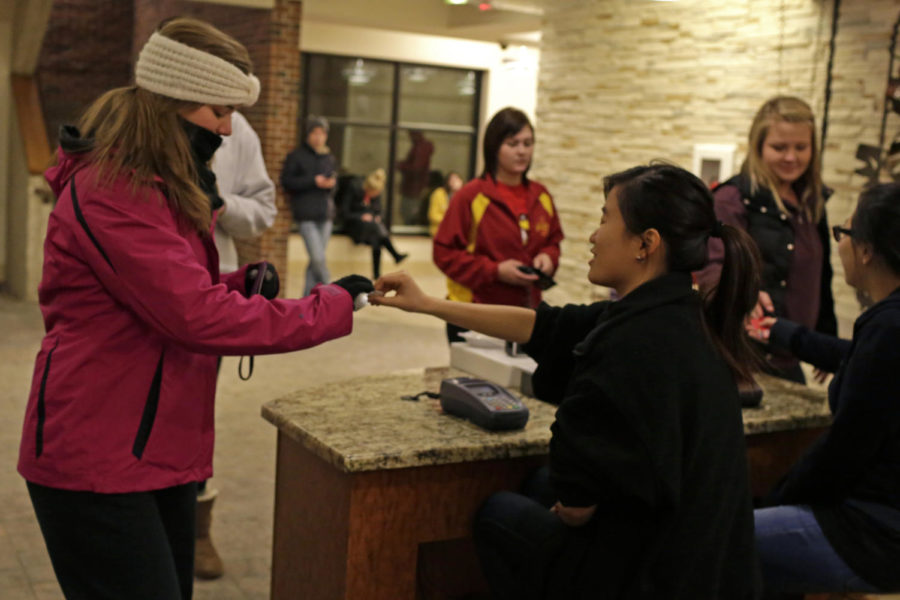Work study benefits beyond the pay check
Brian Achenbach/Iowa State Daily
The largest work study employer on campus is ISU Dining, followed by Parks Library and then Recreational Services.
October 20, 2014
Roberta Johnson, director of financial aid at Iowa State, says work-study employment benefits students beyond the paycheck.
“Many research studies have been conducted that show that students who work about 10-12 hours per week while they’re in college perform just as well, if not slightly better, than students who are not working while they’re in school,” Johnson said.
The rationale is that students who are working learn better time-management skills and are able to connect to resources beyond the classroom.
Elli Rigolle, a sophomore in political science and French, agrees with Johnson. She said her job as a supervisor at the Beardshear Hall Student Answer Center taught her that campus jobs allow you to network with faculty at Iowa State, giving you a stronger foothold in the university community.
Students can also make connections with staff and faculty on a personal level and can fill a void students may have left back home.
“Your employer can be a stand-in for a pseudo-parent sometimes,” Johnson said. “I’ve oftentimes said, ‘You look too sick to be at work, I think you better get over to Thielen right away … I’m worried about you,’ and sometimes your best friends aren’t going to tell you that because they don’t have the right to pull the mom card.”
Of course it’s not all play in a work-study position. You have to acquire one first.
Students are only eligible for work-study on a financial need basis, verified through the Free Application for Federal Student Aid application. Once students are determined to be eligible, they can apply for positions on the Student Job Board on AccessPlus. Johnson says it is up to the student to apply for the work-study position and obtain an interview.
The largest employer on campus is ISU Dining, followed by Parks Library and then Recreational Services. The best work-study positions to hold, Johnson said, are jobs that will enhance students’ resumes.
She suggests working in the Financial Aid office as a receptionist. The students have to be able to answer generic questions but they also “are getting tremendous skills with public relations, [and] communication skills.”
Another important factor Johnson said needs consideration, is how much you are going to work. Some work-study positions allow you to work for just a couple hours between your classes, like Rigolle does.
“Work-study offers jobs on campus that are flexible to work with your changing schedule and academic load,” Rigolle said. “It’s great to work with people who understand that you have stresses outside of work to juggle as well.”
And be careful not to work too much. Iowa State won’t allow students, work-study or not, to work more than 20 hours per week.
“Work in moderation while you are in school,” Johnson said. “If you are a full-time student, you need to not be a full-time worker. You cannot do two full-time things because you will not do either one of them very well.”
There are some great things that can come out of work-study, Johnson said.
“It’s a great opportunity for students to try out some things … you may tap into something you never knew before that you would like to do,” Johnson said.
One of her favorite stories to tell is about a student who was majoring in something unrelated to teaching. He took the time to tutor children through work-study employment.
“He just got really passionate about it,” Johnson said. “It prompted him to actually change his major and go into education and become a teacher.”
Rigolle said she has enjoyed her work-study more than she expected.
“I didn’t expect to have the opportunity to learn so much,” Rigolle said. “Definitely apply for a work-study job if you are eligible. ISU employers give greater consideration to work-study eligible students so you’re in an advantageous position.”







